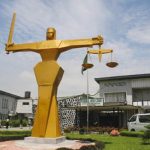There is something about us, mutanen Arewa. Whenever power shifts to the South, we start lamenting, accusing the leader from the South of nepotism or initiating policies deliberately aimed at destroying our region.
We buy into this idea and write about it repeatedly — from 1999 to 2007, from 2010 to 2015, and now from 2023 to date. We always cite our voting power as justification.
Recently, I read an article making a similar argument — comparing our voting power and support for Tinubu with that of other regions. But for how long can we continue these lamentations? When are we going to stop lamenting and start acting?
We need to shift the discourse from an overemphasis on population-driven electoral power to a more strategic focus on economic productivity and revenue generation. The viability and strength of Arewa are not necessarily determined by the sheer size of our population, but by how effectively that population is harnessed for economic growth, innovation, and wealth creation.
Arewa’s fixation on political dominance through demographic advantage has often overshadowed the more critical question we need to ask ourselves:
How do we convert our vast human and natural resources into sustainable development outcomes?
While concerns about inequities in political appointments and perceived nepotism under the current Tinubu administration are valid, persistent lamentation over political spoils becomes counterproductive if not accompanied by proactive strategies for economic transformation.
What has happened to Arewa after all these years of political power? Or what becomes of the “K States” after every election season? What happened to Jigawa or Bauchi? Is it enough to just have a Badaru or a Tuggar as compensation for the over five million votes we gave the President?
What is required is a change in strategy — a deliberate and coordinated effort to leverage our expansive landmass and youthful population to drive industrialization, technological innovation, and inclusive economic growth. Our governors need to be wiser. Have you ever checked the total FAAC allocations coming to our states and local governments? What are we doing with these funds?
In this regard, lessons abound from the developmental trajectories of nations like China and India — both of which have demonstrated how demographic advantage can be transformed into competitive advantage through disciplined policy, strategic investments in education and infrastructure, and a clear vision for economic self-reliance.
The path to power lies not merely in numbers — voting power — but in what those numbers produce after elections.
For me, I have learned my lessons. What we need is not just political power at the centre, but a clear understanding of what we do with that power, and what our governors are doing with the huge resources coming to them from Abuja.
The agitation for removing Tinubu in 2027 can be compared to the agitations for removing the military in 1999 or Jonathan in 2015. They are driven by elite interests, not necessarily by the real conditions we face in Arewa.
Kabiru Danladi Lawanti is an academic staff member at the Department of Mass Communication, Ahmadu Bello University, Zaria.
The opinions and views expressed by contributors are solely their own and do not reflect the official stance of Kano Times.





